
Vibrant Heart of Birmingham: City Centre
Welcome to the City Centre of Birmingham, a bustling hub filled with a blend of historic charm and modern vibrance. This neighbourhood is a treasure trove for tourists, offering a rich tapestry of experiences. As you stroll through the streets, you'll encounter a mix of architectural styles, from the grandeur of Victorian buildings to cutting-edge contemporary designs. The City Centre is home to some of Birmingham's most iconic landmarks. Marvel at the stunning Birmingham Cathedral, an exquisite example of English Baroque architecture. Don’t miss the historic Bullring, a major commercial area that has been a focal point of the city for centuries, now featuring a modern shopping complex. For art enthusiasts, the Birmingham Museum and Art Gallery houses an impressive collection of Pre-Raphaelite paintings. Food lovers will find the City Centre a paradise with its diverse culinary scene. From traditional British pubs to exotic international cuisines, the options are endless. The area around New Street is particularly vibrant, where you can enjoy street performances and alfresco dining. With its combination of cultural richness, historical depth, and modern attractions, Birmingham’s City Centre offers an unforgettable experience for every tourist.
Local tips in City Centre
- Visit early in the morning to avoid crowds at popular spots like the Bullring and Birmingham Museum and Art Gallery.
- Use public transport or walk to explore the City Centre; parking can be limited and expensive.
- Check out the local markets, especially the Birmingham Rag Market, for unique souvenirs and local produce.
- Plan your visit around local events or festivals for an enhanced experience of the city's vibrant culture.
Vibrant Heart of Birmingham: City Centre
Welcome to the City Centre of Birmingham, a bustling hub filled with a blend of historic charm and modern vibrance. This neighbourhood is a treasure trove for tourists, offering a rich tapestry of experiences. As you stroll through the streets, you'll encounter a mix of architectural styles, from the grandeur of Victorian buildings to cutting-edge contemporary designs. The City Centre is home to some of Birmingham's most iconic landmarks. Marvel at the stunning Birmingham Cathedral, an exquisite example of English Baroque architecture. Don’t miss the historic Bullring, a major commercial area that has been a focal point of the city for centuries, now featuring a modern shopping complex. For art enthusiasts, the Birmingham Museum and Art Gallery houses an impressive collection of Pre-Raphaelite paintings. Food lovers will find the City Centre a paradise with its diverse culinary scene. From traditional British pubs to exotic international cuisines, the options are endless. The area around New Street is particularly vibrant, where you can enjoy street performances and alfresco dining. With its combination of cultural richness, historical depth, and modern attractions, Birmingham’s City Centre offers an unforgettable experience for every tourist.
Iconic landmarks you can’t miss
Birmingham Museum & Art Gallery
Discover Birmingham’s rich history and vibrant art scene in a stunning Victorian landmark with free admission and engaging galleries for all ages.
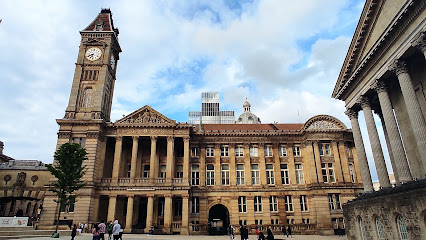
Birmingham Cathedral
Explore Birmingham Cathedral: A historical gem showcasing stunning architecture, serene gardens, and vibrant cultural events in the heart of Birmingham.
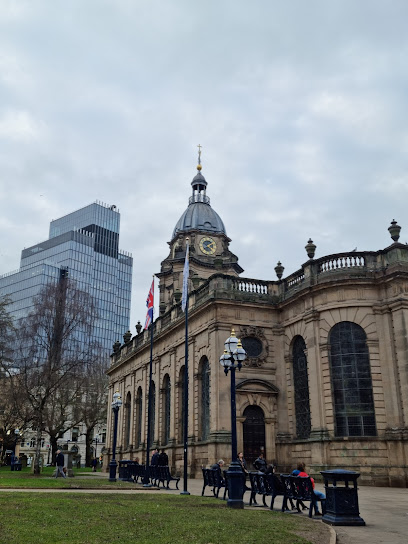
West Midlands Police Museum
Explore the captivating history of law enforcement at the West Midlands Police Museum in Birmingham, a unique attraction for history enthusiasts and tourists alike.
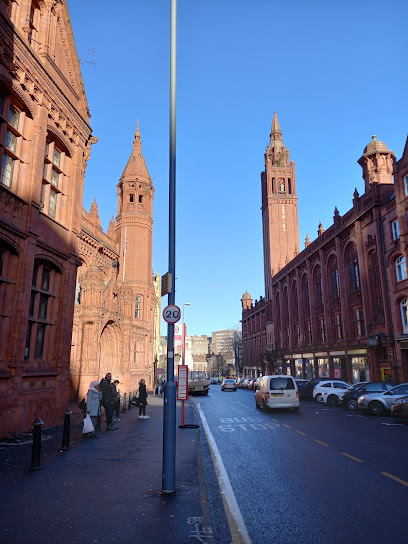
Hall of Memory
Explore Birmingham's Hall of Memory, a stunning tribute to soldiers with rich history, beautiful architecture, and peaceful gardens for reflection.
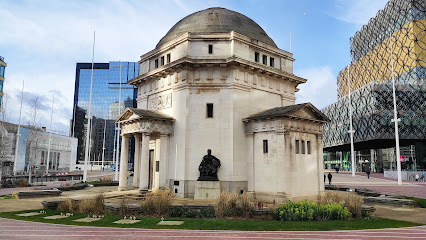
Birmingham Walk of Stars
Discover the Birmingham Walk of Stars, where celebrity culture meets local pride in the heart of the city, celebrating its artistic and cultural heritage.
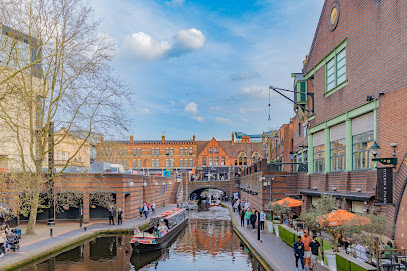
Chamberlain Square
Explore Chamberlain Square, a historical landmark in Birmingham with stunning architecture and vibrant cultural life in the heart of the city.
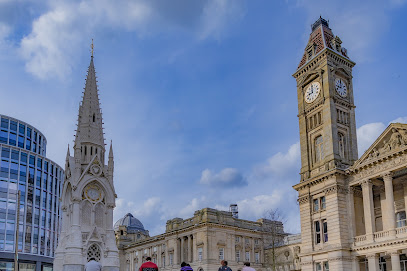
The River
Iconic bronze fountain sculpture in Birmingham’s Victoria Square, blending art, poetry, and urban life since 1994.
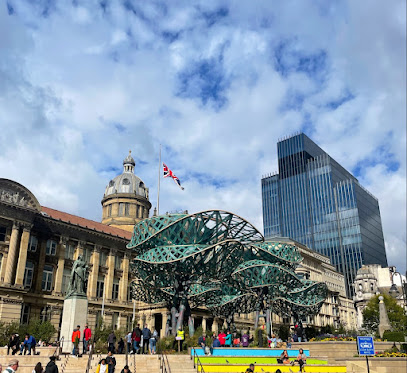
The Grand Central Bull
Experience the vibrant culture and history of Birmingham at The Grand Central Bull, a landmark that embodies the spirit of the city.
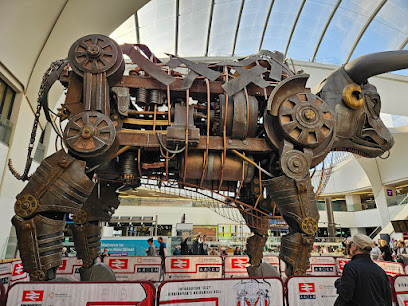
The Best of Birmingham Trail
Explore Birmingham’s rich heritage through 20 iconic sites on this free, immersive city centre trail blending history, art, and urban renewal.
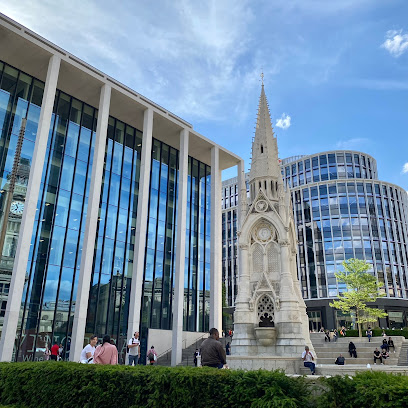
Workers Memorial
A solemn landmark in Birmingham honoring workers lost to workplace tragedy and inspiring the fight for safer labor conditions.
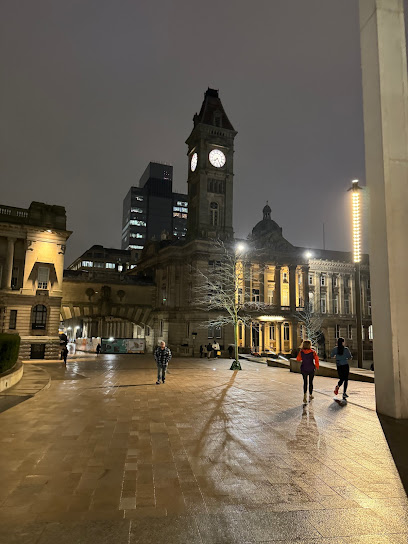
Essential places to dine
Turtle Bay Birmingham
Experience vibrant Caribbean flavours, lively reggae vibes, and 2-for-1 cocktails in the heart of Birmingham’s city centre.
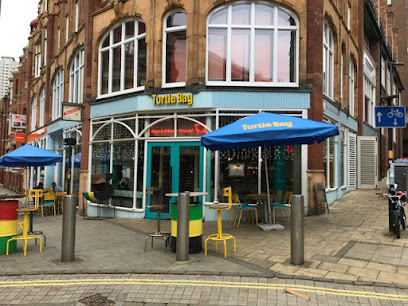
The Lost & Found Birmingham
Botanical Victorian hideaway blending quirky British classics, inventive cocktails, and immersive decor in Birmingham's beating heart.
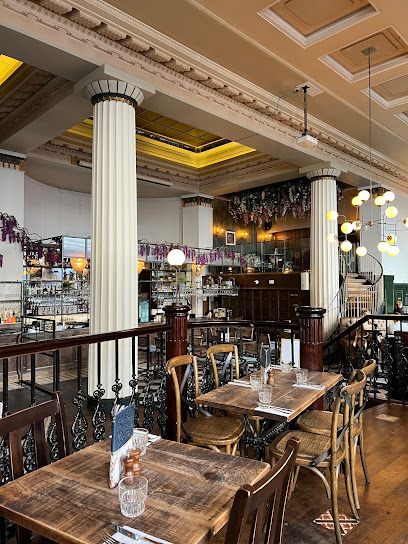
The Ivy Temple Row
Classic British dining with art-deco elegance and impeccable service in Birmingham’s vibrant city centre.
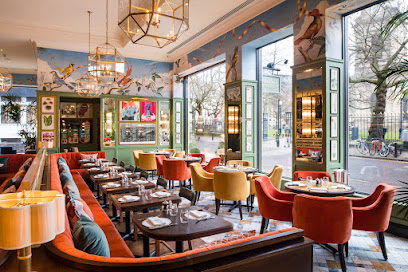
Gaucho Birmingham
Savor premium Argentinian steaks and vibrant Latin flavors in a sleek, modern setting at Gaucho Birmingham, a top destination for steak lovers.
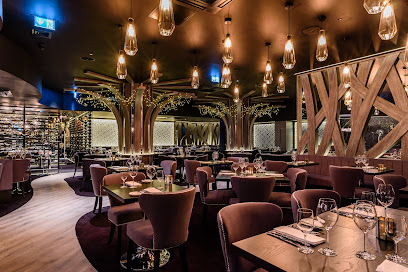
Gusto Italian
Stylish Italian dining beneath Birmingham’s Grand Hotel, blending classic flavors with a lively city centre atmosphere.
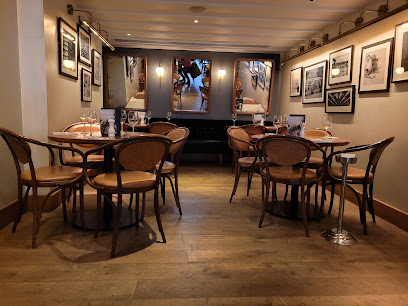
San Carlo - Birmingham
Classic Italian elegance and seafood delights in Birmingham’s stylish city centre dining destination.
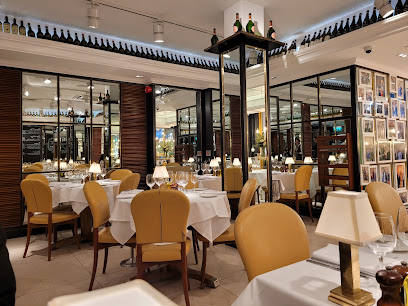
Fumo by San Carlo - Birmingham Waterloo St
Chic Italian dining in Birmingham serving Venetian cicchetti, creative cocktails, and authentic flavors in a stylish modern setting.
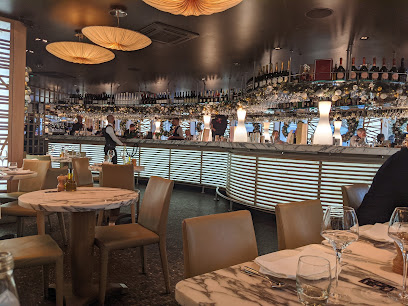
La Galleria
Experience authentic Italian flavors and warm hospitality in the heart of Birmingham at La Galleria, where tradition meets generous portions and cozy charm.
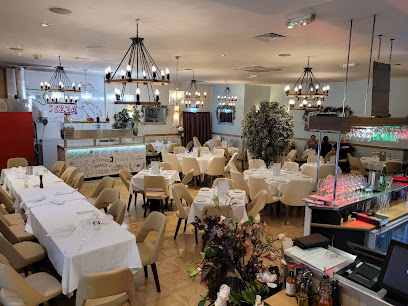
Adam's Restaurant
Michelin-starred fine dining in Birmingham offering inventive British cuisine, impeccable service, and elegant Art Deco surroundings.
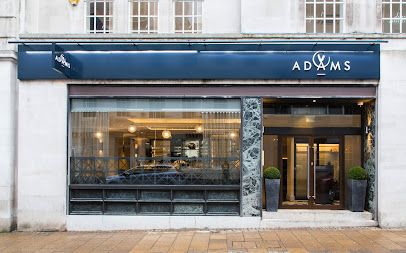
Purnells
Experience inventive modern British cuisine with playful elegance at Birmingham’s Michelin-starred Purnell's, a city dining icon.
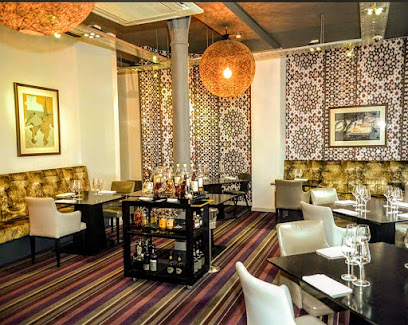
Markets, malls and hidden boutiques
Bullring & Grand Central
Discover Birmingham's Bullring & Grand Central, a vibrant shopping and dining hub with diverse offerings and a unique architectural flair.
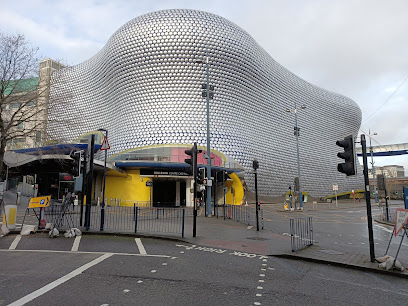
Primark
A huge, multi‑level flagship on Birmingham High Street offering fast, affordable fashion, homewares and themed in‑store concepts under one roof.
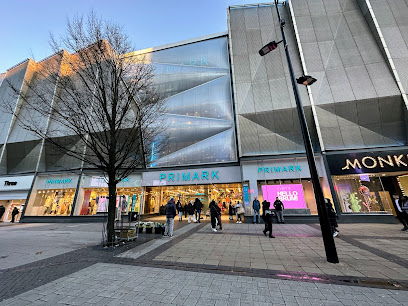
The Arcadian
Discover The Arcadian in Birmingham: a vibrant shopping centre filled with diverse stores, dining options, and entertainment experiences.
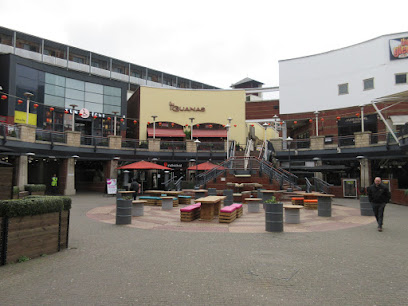
Martineau Place
Explore the dynamic Martineau Place Shopping Centre in Birmingham, featuring diverse shops, eateries, and a vibrant atmosphere for all visitors.
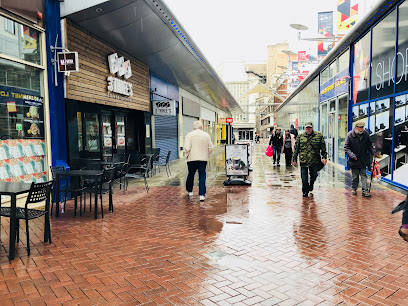
The Square Shopping Centre
Explore The Square Shopping Centre in Birmingham, a vibrant hub for shopping, dining, and entertainment, perfect for all tourists.
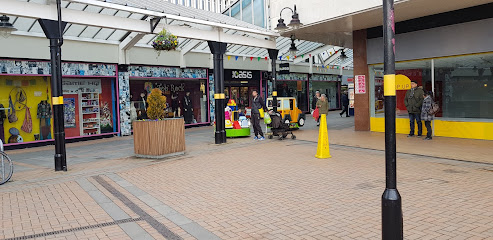
Great Western Arcade
Discover the historic Great Western Arcade, a shopping haven in Birmingham featuring unique boutiques and delightful eateries in a stunning Victorian setting.
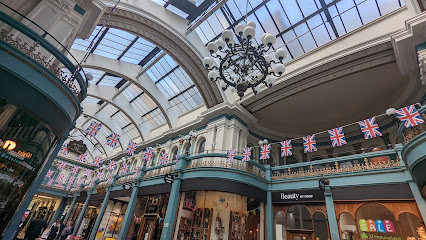
The Oasis fashion store
A compact, multi-floor indoor hub of vintage fashion, alternative stalls and specialist services in the heart of Birmingham.
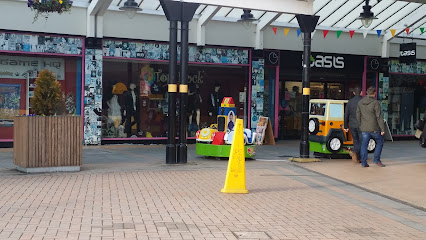
Cow Vintage
Unearth timeless threads in Digbeth's creative heart: Cow Vintage delivers curated retro fashion with sustainable flair.

KENJI Birmingham Bullring
Discover Japanese kawaii magic at KENJI Bullring: plushies, gadgets, snacks, and quirky gifts with a modern twist in Birmingham's shopping epicentre.
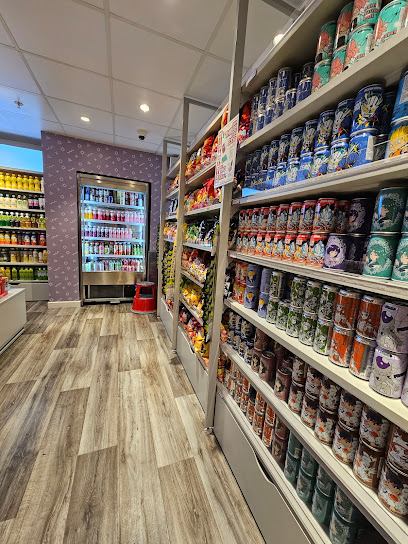
Miniso
Bright, affordable design and collectable character goods — a family-friendly stop for pocket-money treats in Grand Central.
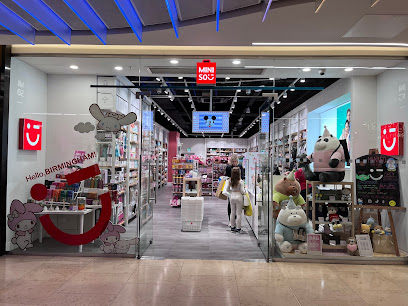
Essential bars & hidden hideouts
The Botanist Brindley Place
Canal-side botanical bar where hanging kebabs swing, cocktails enchant, and live tunes pulse amid Birmingham's shimmering waters—quirky, lively, unforgettable. (152 characters)
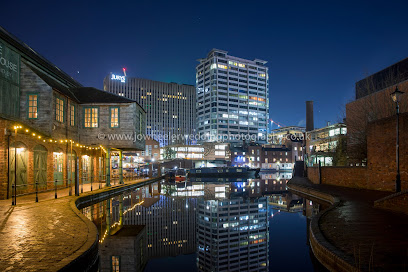
The Botanist Birmingham
Canal‑side bar and restaurant with lush planting, botanical cocktails, live music and an atmospheric beer garden on Birmingham’s Gas Street Basin.
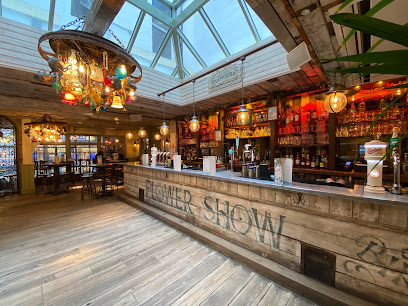
Bacchus Bar
Descend into Birmingham's medieval basement pub: thrones, ales, pies, and god-of-wine vibes in a quirky historic hideaway beneath New Street.
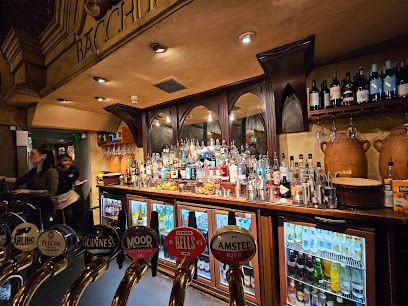
The Alchemist Colmore Row
Birmingham's theatrical temple of molecular cocktails and global bites, where drinks erupt in spectacle amid historic grandeur.
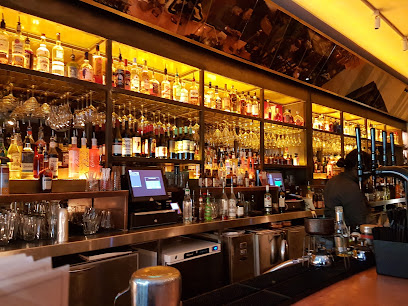
Revolución de Cuba Birmingham
Birmingham's sizzling Cuban haven: rum-fueled cocktails, fiery tapas, and salsa nights across two electric floors—from brunch bliss to late-night fiesta.
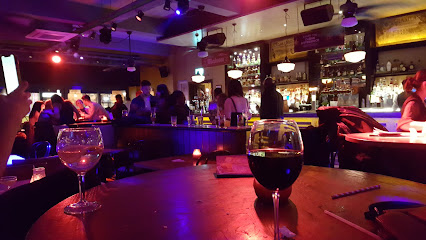
Tilt
Pinball paradise meets craft pours in Birmingham's City Arcade – Tilt's retro magic blended games, beers, and beats until its 2025 farewell.
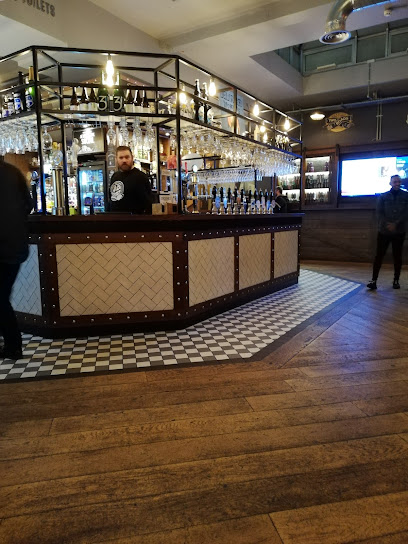
Gas Street Social
Canalside brasserie and cocktail bar at Birmingham’s Mailbox—known for bottomless brunches, sharers and a lively waterside atmosphere.
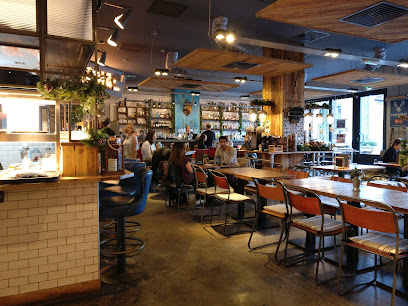
The Cocktail Club - Birmingham
Three floors of cocktail theatre, bottomless brunches, and Birmingham nightlife magic—where sexy sips meet wild vibes until 2am.
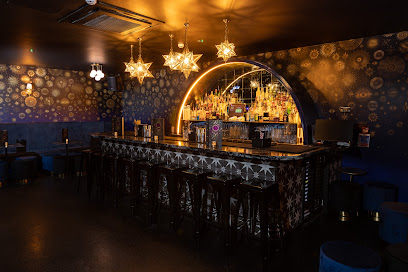
Madeleine
An elegant, salon‑style cocktail bar in The Grand Hotel — famed for refined afternoon tea and meticulous cocktails in a dramatic, over‑sized parlour.
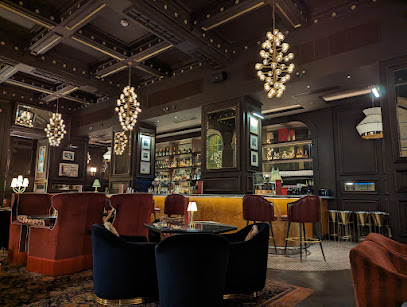
Local Phrases
-
- HelloAlright mate
[al-right mayt] - GoodbyeTa-ra
[ta-ra] - YesAye
[aye] - NoNah
[nah] - Please/You're welcomeCheers
[cheers] - Thank youTa
[ta] - Excuse me/SorrySorry mate
[sor-ry mayt] - How are you?Alright?
[al-right] - Fine. And you?Sound. You?
[saund. yoo] - Do you speak English?Do you speak English?
[Do you speak English?] - I don't understandI don't get it
[I don't get it]
- HelloAlright mate
-
- I'd like to see the menu, pleaseCan I have a look at the menu, please
[Can I have a look at the menu, please] - I don't eat meatI don't eat meat
[I don't eat meat] - Cheers!Cheers!
[Cheers!] - I would like to pay, pleaseCan I pay, please
[Can I pay, please]
- I'd like to see the menu, pleaseCan I have a look at the menu, please
-
- Help!Help!
[Help!] - Go away!Clear off!
[Clear off!] - Call the Police!Ring the bobbies!
[Ring the bobbies!] - Call a doctor!Get a doc!
[Get a doc!] - I'm lostI'm lost
[I'm lost] - I'm illI'm poorly
[I'm poorly]
- Help!Help!
-
- I'd like to buy...I'm interested in...
[I'm interested in...] - I'm just lookingI'm just browsing
[I'm just browsing] - How much is it?How much does it cost?
[How much does it cost?] - That's too expensiveThat's a bit dear
[That's a bit dear] - Can you lower the price?Can you do it cheaper?
[Can you do it cheaper?]
- I'd like to buy...I'm interested in...
-
- What time is it?What's the time?
[What's the time?] - It's one o'clockIt's one o'clock
[It's one o'clock] - Half past (10)Half ten
[Half ten] - MorningMorning
[Morning] - AfternoonAfternoon
[Afternoon] - EveningEvening
[Evening] - YesterdayYesterday
[Yesterday] - TodayToday
[Today] - TomorrowTomorrow
[Tomorrow] - 1One
[One] - 2Two
[Two] - 3Three
[Three] - 4Four
[Four] - 5Five
[Five] - 6Six
[Six] - 7Seven
[Seven] - 8Eight
[Eight] - 9Nine
[Nine] - 10Ten
[Ten]
- What time is it?What's the time?
-
- Where's a/the...?Where's the...?
[Where's the...?] - What's the address?What's the address?
[What's the address?] - Can you show me (on the map)?Can you show me (on the map)?
[Can you show me (on the map)?] - When's the next (bus)?When's the next (bus)?
[When's the next (bus)?] - A ticket (to ....)A ticket (to ....)
[A ticket (to ....)]
- Where's a/the...?Where's the...?
History of City Centre
-
Birmingham's origins date back to the 6th century, with the establishment of a small Anglo-Saxon settlement known as 'Birmingeham'. The name itself is derived from a local tribe, the Beormingas. The area remained relatively small until the 12th century, when the establishment of a market and a parish church led to its growth as a prominent market town.
-
The 18th and 19th centuries marked a period of rapid industrialization in Birmingham, transforming it into a powerhouse of manufacturing. The City Centre became a hub for the metalworking industry, with innovations in tools and machinery. The construction of canals and railways facilitated trade and attracted a workforce from across the UK, leading to significant urban expansion.
-
As Birmingham grew, so did its cultural landscape. The establishment of institutions such as the Birmingham Museum and Art Gallery in 1885 and the Birmingham Symphony Hall in 1991 showcased the city’s commitment to the arts. The City Centre became a vibrant cultural hub, hosting music festivals, art exhibitions, and theatrical performances, reflecting the diverse community of the city.
-
During World War II, Birmingham's industrial significance made it a target for bombing raids. The City Centre experienced extensive damage, particularly in the 1940 Birmingham Blitz. Post-war reconstruction efforts transformed the area, with modernist architecture replacing many historic buildings, leading to a blend of old and new that characterizes Birmingham today.
-
In the late 20th and early 21st centuries, Birmingham's City Centre underwent significant regeneration. Projects like the Bullring shopping centre, completed in 2003, and the ongoing development of the Paradise Birmingham project reflect the city’s ambition to modernize while preserving its rich heritage. The City Centre now serves as a dynamic economic and cultural centre, attracting millions of visitors annually.
City Centre Essentials
-
The City Centre of Birmingham is easily accessible from various neighbourhoods via public transport. The Birmingham New Street Station serves as the main train hub, offering connections from all over the UK. Local buses also operate extensive routes into the City Centre, with services provided by National Express West Midlands. For those coming from Birmingham Airport, the Airport Shuttle service will take you directly to the City Centre in about 30 minutes.
-
Once in the City Centre, getting around is convenient thanks to the extensive public transport network. The West Midlands Metro tram system connects key areas within the city and beyond. Buses are frequent and cover a wide area, while cycling is encouraged with dedicated bike lanes and bike hire schemes available. Walking is also a pleasant option, as many attractions are within easy reach.
-
Birmingham City Centre is generally safe for tourists, but standard precautions should be taken. Areas such as Digbeth and certain parts of the Jewellery Quarter can have higher crime rates, particularly at night. It is advisable to remain aware of your surroundings, especially in crowded places, and to avoid displaying valuable items openly.
-
In case of an emergency, dial 999 for police, fire, or medical assistance. There are several hospitals and urgent care facilities in the City Centre, including the Queen Elizabeth Hospital. It’s advisable to have travel insurance that covers medical emergencies. If you require help, approach any local shop or call the police at the station.
-
Fashion: Do dress comfortably and appropriately for the weather. While Birmingham is generally casual, avoid overly revealing clothing in certain areas. Religion: Do respect diverse beliefs and practices; when visiting places of worship, dress modestly. Public Transport: Do keep noise to a minimum and give up your seat for elderly or disabled passengers. Don’t eat or drink on buses or trams. Greetings: Do greet people with a friendly smile or nod; handshakes are common in formal settings. Eating & Drinking: Do try local dishes, especially in the diverse food markets. Don’t leave a tip less than 10% in restaurants, as it's considered impolite.
-
To experience the City Centre like a local, explore the Bullring Market for fresh produce and local delicacies. Visit the historic Birmingham Library for a unique architectural experience and stunning views from the rooftop garden. Engage in conversations with locals, especially in cafes and pubs, where you can learn about the city's history and culture. Don’t miss out on the vibrant street art around Digbeth, which showcases local talent.
Nearby Cities to City Centre
-
Things To Do in Stratford-upon-Avon
-
Things To Do in Nottingham
-
Things To Do in Oxford
-
Things To Do in Chester
-
Things To Do in Sheffield
-
Things To Do in Manchester
-
Things To Do in Bristol
-
Things To Do in Liverpool
-
Things To Do in Bath
-
Things To Do in Cardiff
-
Things To Do in Cambridge
-
Things To Do in Windsor
-
Things To Do in Leeds
-
Things To Do in London
-
Things To Do in York













